#boy howdy: the story of creem magazine
Text
BEST DOCUMENTARIES OF 2020, #10-1
For #15 to 11 and Honorable Mentions on my Best Documentaries of 2020 list, read here. Here now are the Top 10:
10. City Hall Frederick Wiseman

Wiseman’s comprehensive 4.5 hour doc shows the inner workings of Boston’s city government.
9. The Orange Years: The Nickelodeon Story Scott Barber / Adam Sweeney

This doc about the early days of Nickelodeon is TV Heaven if you grew up in the 80s or 90s!
8. Zappa Alex Winter

Winter dives deep into Frank Zappa with access to Zappa’s personal archives!
7. The Go-Go’s Allison Ellwood

The first all-female rock band to write and perform their own music to go to #1 on the album charts, finally get the doc and respect they deserve!
6. Creem: America’s Only Rock ‘n’ Roll Magazine Scott Crawford

This doc about the 70s music magazine is music geek heaven!
5. Totally Under Control Alex Gibney / Ophelia Harutyunyan / Suzanne Hillinger
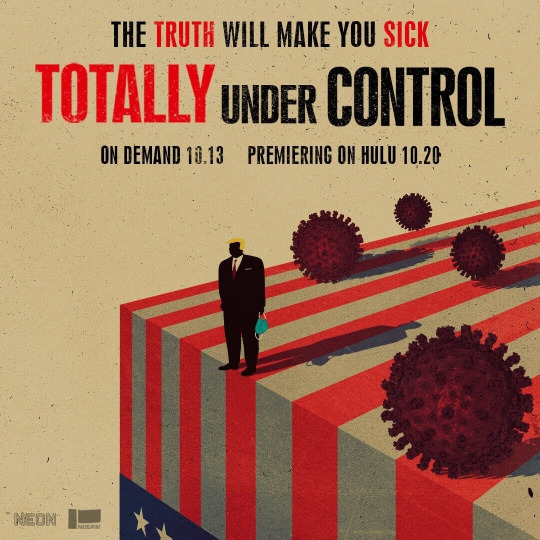
Tie. All In: The Fight for Democracy Lisa Cortes / Liz Garbus
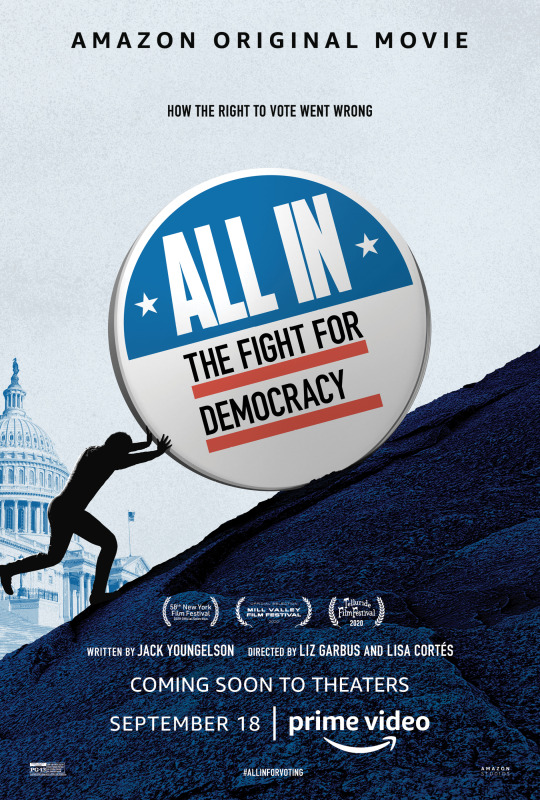
There were a lot of political docs in this election year, but these two about the Trump administration’s (mis)handling of the pandemic in TUC and the history and current state of voter suppression in All In, were the most powerful political docs of 2020!
4. Bruce Springsteen’s Letter to You Thom Zimny

Springsteen has continued the streak in recent years (Springsteen on Broadway, Western Stars) of being one of the finest doc subjects of the now, a storyteller for the ages in this doc about his new album.
3. Hamilton Thomas Kail
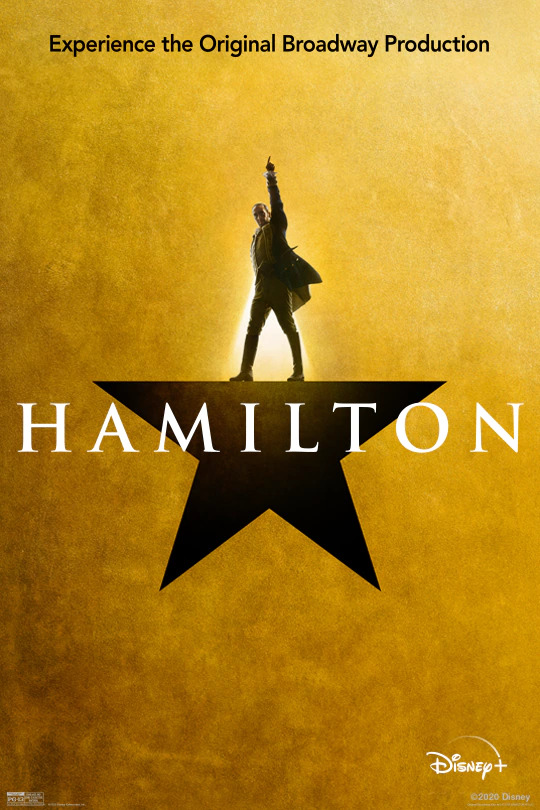
This 2016 taping of one of the biggest Broadway shows of the 2010s lived up to all the hype!
2. Crip Camp James Lebrecht / Nicole Newnham
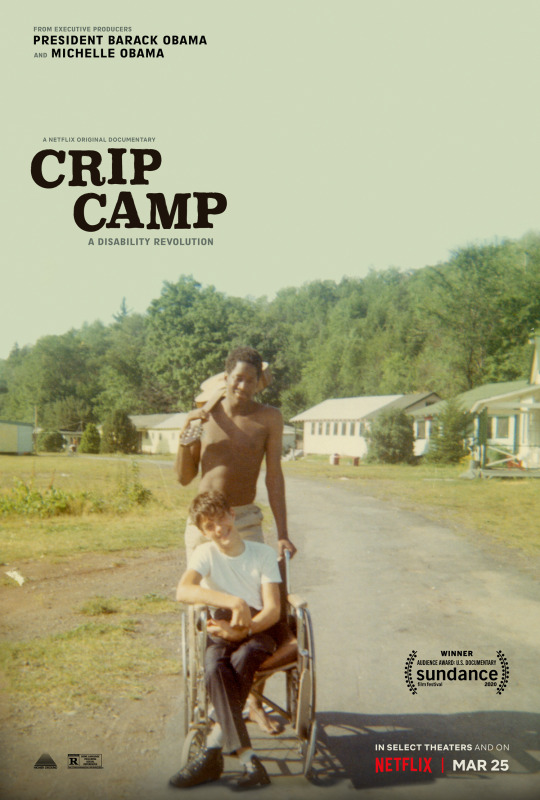
It starts out as a doc about a camp in Upstate NY for teens with disabilities, but it really shows the impact that camp had on disability right activism and the progress since the 70s. Empowering and inspiring!
1. David Byrne’s American Utopia Spike Lee
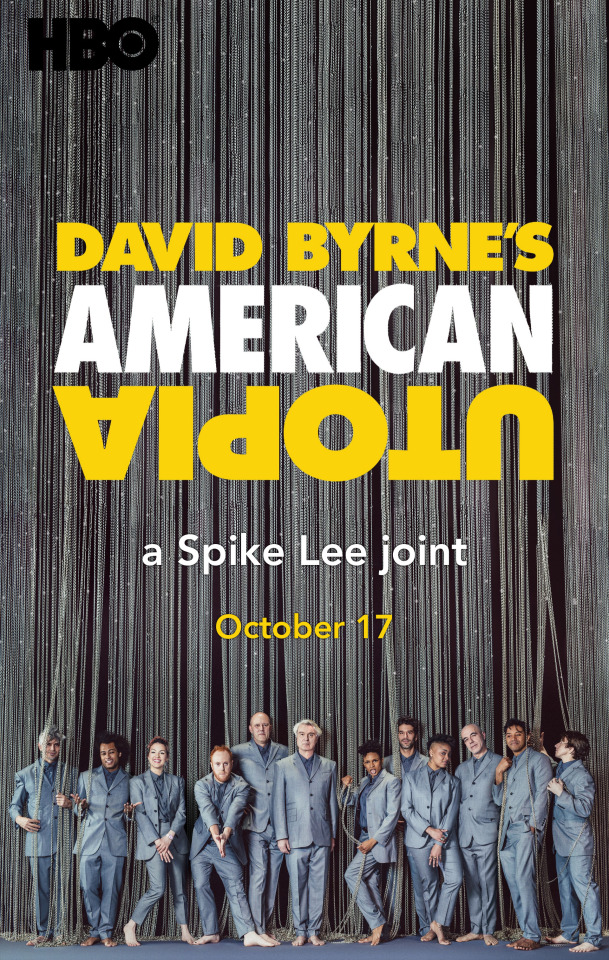
Lee brilliantly captures Byrne’s Broadway show in one of the best performance docs in a very long time. A full 36 years after Bryne and Talking Heads made the greatest concert doc of all-time Stop Making Sense, Byrne and Lee have come together with something to say about America in 2020!
#best of 2020#city hall#the orange years#Zappa#alex winter#frederick wiseman#The Go-Go's#boy howdy: the story of creem magazine#totally under control#alex gibney#all in: the fight for democracy#bruce springsteen's letter to you#thom zimny#hamilton#crip camp#david byrne's american utopia#spike lee#lists#documentary#film geek
10 notes
·
View notes
Link
"Reay offered him $50 to draw the cover of issue No. 2. Crumb’s illustration included an anthropomorphized bottle of cream exclaiming “Boy Howdy!,” which became the magazine’s mascot and catchphrase."
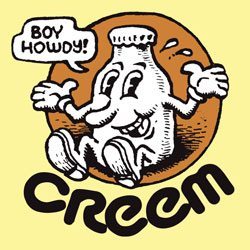
32 notes
·
View notes
Photo

Jaan Uhelszki
Creem Rising to the Top
By Jay S. Jacobs
“America’s Only Rock ‘N’ Roll Magazine.”
That’s a pretty brash statement. A little defiant. Perhaps even a touch naïve. That’s why the catchphrase fit the legendary rock mag Creem – the magazine was proudly all of those things.
Born in Detroit in the late 60s, Creem took a bunch of people who knew nothing about running a magazine, let their passions and their quirkiness loose, and became the bible of rock and roll nerds all around the country for well over a decade. Run by a businessman named Barry Kramer – who had his share of demons but was passionate about the magazine – it became a home for such legendary rock journalists and editors as Lester Bangs, Dave Marsh, Ben Edmonds, Greil Marcus, Robert Christgau, Chuck Eddy and many more.
The magazine became legend. Interviews could be quirky and argumentative. Reviews were brutally frank and often barely touched on the music. Sex, drugs, rock ‘n’ roll, cars, and the fictional “Boy Howdy” beer ruled the day. Rock stars would just pop in because they wanted to party with the Creem staff. For a while, the magazine even became something of a commune, with the entire staff living in a Michigan farmhouse.
However, little over a decade later, Kramer and Bangs were both dead and Creem had somewhat lost its way. It continued on with different owners and different viewpoints, switching to New Wave and Heavy Metal before finally closing its doors in 1989. (It was briefly rebooted with new management as a glossy mag in the early 90s.)
Jaan Uhelszki was at the magazine from the start – one of the women in the boy’s club and writer of some of the magazine’s most iconic stories. She even got the members of her favorite band – KISS – to allow her to put on makeup and go up on stage with them and write about the experience.
In recent years, JJ Kramer – who was only four when his father Barry died – fulfilled his lifelong ambition of regaining the rights to his father’s magazine. He got together with documentary filmmaker Scott Crawford and Uhelszki to make a movie celebrating the crazy life of Creem – the kind of story which probably could not happen in the current world.
Creem had only had one abiding rule: “We are a rock 'n' roll magazine, with all that that implies. Our culture is a rock 'n' roll culture. We are rock 'n' roll people.”
About a week before Creem: America’s Only Rock ‘N’ Roll Magazine was about to be released on Video on Demand, we caught up with Uhelszki to look back at Creem’s crazy glory days.
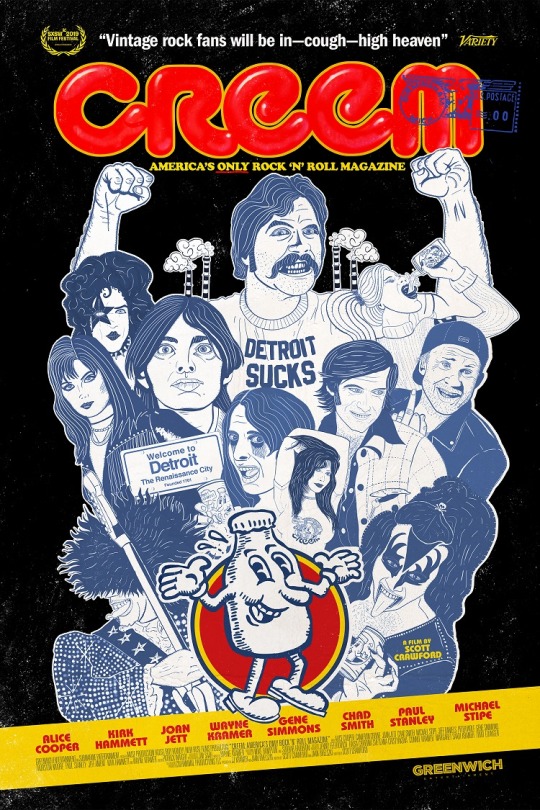
I really enjoyed the film. I particularly looking forward to it the movie because I wrote some stories for Creem towards the end, after you were gone, I believe…
Oh no, I was still there. It was a different entity.
In the 90s when it was rebooted as a glossy for a short time?
Yeah, me too.
Great. So, you were still there. That's cool.
Except that wasn't really Creem. It's like they changed the licensing. I did a cover story called “Look Back in Anger” about the Creem years. I loved Chris Nadler. He was such a great editor. That's a great guy to work with. That wasn't Creem. It was just funny that it still has legs back then. It was such a hard thing to let go of…
I know. I was like too young to be there in the glory days like you. At least I got in at some point in the Creem history.
I know. Well, if we do it again then you know what? Look us up…
Definitely. What was it like to look back at the early days of Creem after all this time?
I wrote half the movie – Scott [Crawford] and I – and produced it. I've been thinking about it for years. Most everything that I am this incarnation – because I’m still a music journalist – [it] all started there. That curious way of writing, putting yourself in the story. What struck me the most was that even though we didn't know what we were doing, and we weren't so much breaking rules as making new rules. The writing was really good.
It certainly was…
I was unprepared for that, because sometimes you look at things with revisionist eyes. You go back to your elementary school and you go, “Oh my god, that's so much smaller than it seemed.” Objects in the rearview mirror were actually bigger than I remembered. I think now I'm much more of a sophisticated reader and writer. Some of the things I read by Greil Marcus, or Dave Marsh, or Ben Edmonds, or even things that I wrote that I thought I hated the time, just really sang,
And of course, Lester Bangs…
Lester was so much more than the buffoon cartoon character he's often portrayed as. There's some of his pieces that had such shrewd analysis. So again, as an adult, I was wowed. When you're in the middle of [working on a magazine] – or you run your own website – sometimes you don't have time to just stop and go, “Wow, we really did this.”
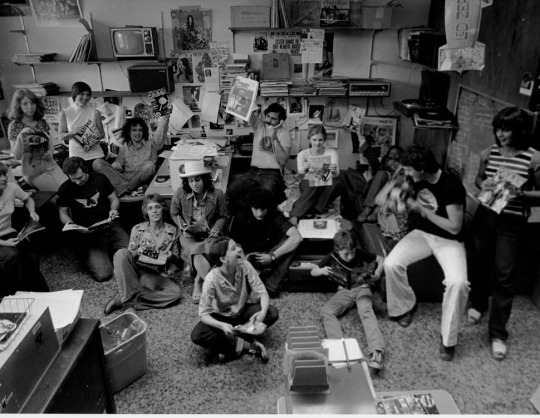
One of the most interesting things in the movie was at the beginning, pretty much nobody really had any kind of background in this stuff. You guys were just getting into it and flying by the seat of your pants. Do you think that that added to the spontaneity and the free spirit of the magazine?
I've got a friend of mine who used to be a Guitar World editor, Brad Tolinski. He says about Detroit, “Detroit isn’t New York and it's not LA. We try to mimic what they do, always, culturally. We get it wrong, but in the getting it wrong there's a genius and originality and imagination. Doing things, a little askew.” I think that Creem has a benefit of that. Or maybe we were victimized by that. But we absolutely had no clue.
That can be a good thing.
You know what we were? We were crazy fans. I would stand at the A&P [an old grocery chain] waiting for the shipment of 16 magazines to come. Even with a teen magazine, I just always so entranced in the lives of rock stars – the Beatles, or even teen idols. Lester read jazz magazines. We were just crazy consumers. Thing that KISS used to say, “KISS isn’t much different than their fans.” We weren't any different from our readers. We were the same.
That was one thing that I loved about Creem. They’d go for some really avant garde artists, but they'd also love the big, commercial artists. In the documentary, they just did a quick shot of this one cover that I had forgotten that was funny, but it's actually kind of cool, too. It was like, “John Denver is God. Bruce Springsteen is Not God.”
Oh yeah. (laughs)
They were open to just about anything. They had some very, cutting edge things but they also had some more middle of the road things too. Did you think that added to the whole feeling of the magazine?
What it was is everybody had a favorite. We all didn't like the same music. You really had to just defend it or write something. It wasn't like “we can't possibly write about that.” I remember Ben Edmonds loved Alice Cooper and Todd Rundgren. I loved KISS. Dave Marsh liked African American artists.
That diversity showed in the magazine.
We didn’t have to sell it. All we had to do is write it, really. There was a lot of freedom of expression. In the very beginning, we could do whatever we wanted, because we weren't really making a lot of money. (laughs) We were just taking a lot of chances. It was great. I've never had that kind of freedom. Never again in my life. I always look at that as the standard. What you're trying to do is get to a situation where you can actually have your voice heard and really, unabashedly love somebody, or unabashedly hate somebody.
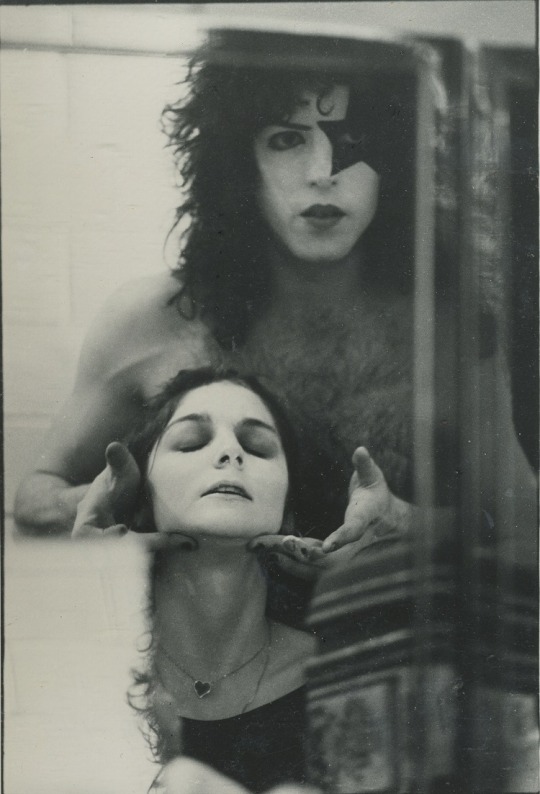
You mentioned your love for KISS. One of your most famous articles was when you got to go on stage with KISS and write about it. What was that experience like? And how did that inform your writing about musicians afterwards?
I was so shocked that I could pull it off, that they actually said yes to this harebrained idea. You go on the road with bands and you see them. You think you're seeing them in the act of being themselves but there's nothing like sitting in front of a makeup mirror for an hour and 45 minutes with four guys. It's like you’re at a gossip-fest. Everybody really did let their hair down. I really saw human moments. I felt like one of them. They let me in the way that no other band did at the time.
That must have been an eye-opener.
Then what happened was when I was on stage with them, I understood how addictive the crowd is. There's a powerful energy that comes from a crowd that hits you like a blast of heat. When you hear about like old hair bands, or people going past what you think is their prime, if you feel that for one song, and understand it, what do you think it's like having your whole career that way and having that stop? It's really hard to give up. I was much more empathetic to why musicians do what they do.
The film also talks about how rock stars with just pop in at the Creem offices with no advance notice or anything. What were some of your favorite experiences?
The Dictators came over and just took it over. Rod Stewart and the Faces came for a party and it was so raucous that I remember Barry Kramer's assistant Sandra Stretke – she's in the film, she's a blonde with a long ponytail – she and Rod Stewart hid under a table, because it just got too nuts. I love Mitch Ryder because he was my childhood hero. He was actually managed by Barry Kramer, so a guy when I was a kid who I followed around outdoor shopping malls because he was like, you know, “Devil with the Blue Dress On.” (laughs) He was in the office all the time. They practiced on the floor above us.
Nice…
KISS came in that famous moment where… I think it's not in this version of the movie, but our director convinced them to take a photo without their makeup on. This was when they were taking great pains to conceal their identity. Somehow – I mean, I know exactly how it was – this photo got out and picked up everywhere. It was stolen from my apartment by my one of my sister’s friends. That was a big hoo-ha. I thought that Paul Stanley wasn't going to be in the film because he's still mad about that, even though it happened, like, oh my god, 1975.
Well he did appear in the film.
You just really didn't know who [would] come. I wasn't there for the Runaways. I'd already left. I was living in Los Angeles, but that was pretty seminal. I remember Joan Jett telling me about it afterwards. She was so proud of it. That's really her brand. She really is that tough chick.
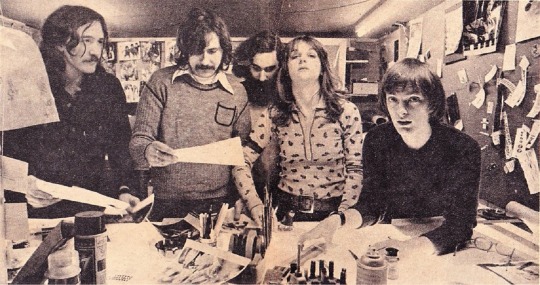
Obviously, Barry and Lester no longer around to talk about the experience, but it seems like the film got most of the other people of note to discuss the magazine. What was it like to see how they turned out? Have you been keeping in touch with them?
You mean, all the people who worked for Creem?
Yeah.
Oh yeah, we're really a tight group. A lot of them have passed on. I was one of the youngest people, and I'm well into… please don't put my age, although they could add it to the numbers. (laughs) A lot of people have gone on to the other world. But the rest of us we really were like in a war together. It was very hard charged.
Yes, that can forge some real bonds.
It was when you think of Keith Richards and Mick Jagger. The tension that comes out of that relationship ends up in really good songwriting. It was that same kind of creative tension and argumentation. Just big personalities all the time. Either you were part of that, or you witnessed it. We all keep in touch. Susan Whitall, I've known since the day she came into the door and we're still really close. Dave DiMartino, Bill Holdship, Lenny Kaye, so many of them. Yeah, we are close.
Were there any people that you would have liked to interview that the film couldn't get?
Most of the people who passed on. There were people that we covered. A lot of people passed away while we were doing it. Ben Edmonds, who was an editor while I was there, he came a little before me. Just people that we've covered. We wanted to get Ian Hunter because he was such a big part of our myth. He used to be a really close friend of Lester Bangs. Sometimes you'd come into the office and he'd be asleep on a sofa next to Lester's desk. But it was just logistics.
Right.
I think we got [mostly] everybody we wanted to. We wanted Patti Smith. But you know, Patti Smith is bigger than Patti Smith was then. It was schedule and how she spends her time these days. I think probably she was the one that got away for me. Me personally.
Several of the writers, particularly the women writers, noted they know that they Creem could be brash, even a little bit mean sometimes. The world has changed so much with political correctness and everything. Do you ever look back on things that you did back then or the Creem did and then wonder how you guys got away with it?
I know I said that movie, “I wrote half of the captions, so kill me.” I rather regret that I said that. I was being a little defensive. I don't think were gratuitous on the sexism or gratuitously mean. What we were was funny. We wouldn't put something in just for the wow factor, the shock factor, of sex. It had to be funny. It's like that Roger Rabbit, quote: “It’s only a joke if It's funny.” It was only used If it was funny. If it wasn't, then it wouldn't go into the magazine.
That makes sense.
Despite what some have said we really weren't a skin magazine, although we got racked that way for a long time in 7-Elevens. I don't feel like anything was really mean spirited. It was ironic. It might have been retaliation. In some cases, if someone got a bad review it was because we so loved them and you're disappointed. It was some kind of inverse rule where I would actually be harsher on somebody I'm a massive fan of when they will release an album which I think it's not up to their talent level.
You know they can do better.
I know Lester was that way. I think that's the genesis of all his Lou Reed problems. He was so mad at Lou Reed because the Velvets [The Velvet Underground] were his Beatles. Once Lou left and went on his own and was releasing albums, like Berlin, I'm not sure which one really peeved Lester. He would just goad them and try to have them defend those art statements, although the one he loved so much was Metal Machine Music. He used to play it in the office over and over and over. And he had the controls of the record player, which was above his desk, so we couldn't get him to take it off. That was torture.
Yes, I know that feeling. I once worked in a record store. And they wound play the same albums repeatedly and you just wanted to go “aughh!”
(laughs) I know, right?
Metal Machine Music while it's interesting, it's not the type of thing I think you want to listen to on a regular basis.
Oh no. Exactly.
Were there any new things that you learned about Creem in the making of the film that you didn't know back then or hadn't heard over the years?
No, I was pretty much there from 1970 and within contact to almost the bitter end, so nothing surprising. Really the only thing that surprised me was I thought we were faking it for so long and I realized we weren't. I didn't have an appreciation for the years after Barry died and Dave DiMartino was the editor and Bill Holdship. I had gone back to school. I took about seven good years off to raise a daughter and go back to college. I didn't really read Creem then. I wasn't going to an Elvis Costello concert. I was listening to mom rock. (laughs)
A whole different lifestyle.
Going back into the archives to pull things, I read a lot of stories that were just as good as the early stuff. I know that it often gets criticized that after Lester and I and Ben Edmonds and Dave Marsh left, it really had lost luster. That’s not really true. I think that they were just as funny. A different kind of sense of humor, but it's just as good and just as funny. Up until the end, up until it was sold and moved to Los Angeles, I thought it was a really excellent magazine. It was a different beast. They should have even changed the name when it went to LA. Maybe even the Carnegie Publishing [era] was probably better. That was a revelation for me because you get a little snobby about your own era.
Well, like I said, I was in the later era. That was not even mentioned in the movie, which was right. I totally get that. Even the New Wave/Metal middle 80s section was just sort of mentioned in two or three sentences and that was about it. Why did you guys decide that you wanted to really hone down on that one era?
That’s considered the golden era, when all the people who broke out of there became bigger. That that was kind of the incubation tank, where we all were just getting started. That's when the sales started skyrocketing. We were the number two magazine, behind Rolling Stone. Given that [the film] was Kickstarter funded, we didn't have a lot of money to tell our story.
Yes, that’s always a concern.
We wanted to concentrate on one narrative arc. The narrative arc which actually appeared was when I interviewed Cameron Crowe and he likened it to a band. I'm not sure that it's 100% accurate because I think we were just as much an ensemble cast as Friends, but it made sense to hang the narrative tag on the fact that was Lester, David and Barry and it was a band. It was a band, putting out a magazine about bands.
That makes sense.
It was an economical and a narrative decision. And we would only deal with the Kramer-owned entity. We wouldn't have dealt with the guy who owned Raygun or the later Carnie publishing, because it wouldn't have fallen under JJ’s auspices and wouldn't really pertain to him. It was a story of finding his father. That was really the subtext of the whole movie. He wouldn't have found his father in the Marvin Jarrett version or the Carnie publishing version. That's why it focused on that one time period. It really ends when Barry dies and Lester dies.
Right, exactly. How important is that JJ has gotten finally gotten the complete rights back to the to the classic catalog of Creem?
I think for him, there was a hole there and now there's not. It’s no accident that he became an intellectual property lawyer. It's almost like when your mom dies of cancer, you become an oncologist. JJ wanted the rights of this magazine back since his mom had to sell it. That was his lifelong mission. I think he’s like 43-44, and he’s done it. That has to feel so good. That's much bigger than what anybody else has ever even done in that documentary. JJ got something so much more valuable. It's like the commercial: It's priceless.
It sure is.
That's what makes me happiest about it. I owe Barry Kramer my career. If I could be a small part of helping his son figure out what his absent father was really like, that makes me happier than any single thing about this whole movie.
Obviously, magazine publishing has taken a lot of hits over the years.
Oh yeah.
Do you think it would be possible for there to be another Creem, not even necessarily a music magazine, just that kind of a working situation in the new millennium?
Remember Spy magazine? And there were some other magazines that actually could tell the truth and be funny and they weren't dependent on the access they had to stars. I think the reason people aren't able to publish such a candid magazine, such an irreverent one, is because they're always afraid of access. Once you take that off the table, you can tell the truth and you really are responsible to your readers.
True.
When Creem started out, we were really conscious that we didn't want teenagers wasting their money on bogus pieces of art. Like the review Lester [did] of Alice Cooper: “a shameful waste of plastic.” We wanted to prevent them from spending their allowance money frivolously. That was part of our mission and I think that should still be a mission. I listen to movie reviews on KCRW every Friday to decide what movies I'm going to rent or stream. I actually want to hear the truth. I think that most people are like me. I think that there is a place for that. You just have to do it. And, again, do you have to worry about the money? Yeah, you do have to worry about the money, but I still think that there's such a need for that. I mean, don't you feel that with your website? Do you feel like you really want to tell the truth?
Totally.
Look, you're doing it then. You're doing it. So, you have to know that as possible. It's paramount.
Absolutely. Okay, one last question. It's off topic, but it's sort of everyone's life right now. How are you dealing with the new state of the world, the whole shelter in place lifestyle?
I’m such a hermit because life as a writer. I don't know about you, but I don't really see anybody when I'm on deadline. So, my life hasn’t changed all that much. I think the good things that happen from it is you’ve got a lot of time by yourself. You think about what's important to you. I don't want to sound all cheesy and emo and Lifetime movie, but it's concentrated my mind. It's not that things don't matter. People matter. I'm just grateful for that, and a little fearful. I'm really careful about it, but the story of my life really hasn't changed that much.
Thank you so much for speaking with me. And best of luck with the movie.
Thanks, Jay. And thanks for carrying on the torch and being part of Creem even if it wasn't the Kramer-owned Creem. At least you were part of that. I thought that was a really good magazine when it was oversized and glossy. I was proud to be a part of that.
Copyright ©2020 PopEntertainment.com. All rights reserved. Posted: August 27, 2020.
Photos courtesy of Greenwich Entertainment. All rights reserved.
3 notes
·
View notes
Text
¡Nuevas incorporaciones a IN-EDIT 2019!
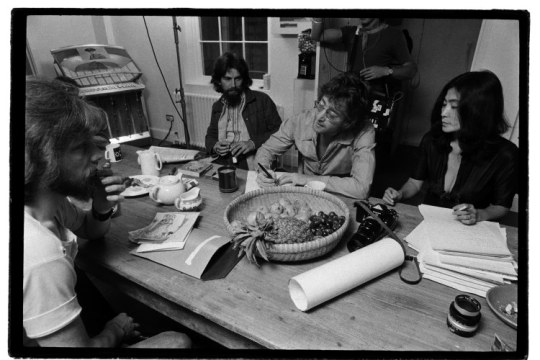
24/10 - 3/11 2019 | Varios cines
A falta de menos de un mes para que arranque una nueva edición del festival In-Edit, se han incorporado ocho títulos más a la programación.
A nivel internacional, se suman dos historias que arrancaron en la ciudad de Detroit pero cuyos efectos trascendieron fronteras y generaciones: “Boy Howdy! The Story of Creem Magazine” y “Suzi Q”. También contaremos con las historias de dos iconos de la música de los años 60 como “John & Yoko: Above Us Only Sky” y “David Crosby: Remember My Name”, y viajaremos a los 90 de la mano de la película “Suede: The Insatiable Ones”.
En el apartado dedicado a la cosecha nacional de documentales musicales, estamos tan o más contentos con los 3 nuevos títulos que incorporamos y la interesantísima variedad de historias y enfoques que reflejan. Son “Jai Alai / Fiesta Alegre”, “VVV (Trippin’you)” y “The Bass of Women”.
Consulta horarios y entradas aquí.
0 notes
Text
Creem Magazine Documentary Set To Premiere At SXSW
"Boy Howdy! The Story of CREEM Magazine," will premiere at SXSW on MARCH 10th with a cast that includes KIRK HAMMETT, CHAD SMITH, ALICE COOPER, CAMERON CROWE, MICHAEL STIPE and GENE … more
0 notes
Video
youtube
Boy Howdy!: The Story of CREEM Magazine
Documentary Teaser
In its 1970s heyday, Detroit-based music magazine Creem was home to seminal editors/writers/photographers like Lester Bangs, Robert Christgau, Greil Marcus, Patti Smith, Bob Gruen, Jenny Lens, and so many more. Indeed, it was in its pages that Dave Marsh coined the term "punk rock" in 1971. Creem's content was superb. It was unabashedly critical of fame, didn't take itself too seriously, and documented the more underground artists, bands, and scenes of the time, from the MC5 to Alice Cooper, New York City's glam rock culture to the proto-punks of the US and UK.
Boy Howdy! is director Scott Crawford's forthcoming documentary about Creem ....
#boy howdy!#boy howdy#creem magazine#creem#detroit#lester bangs#robert christgau#greil marcus#patti smith#bob gruen#jenny lens#dave marsh#scott crawford#documentary#documentary teaser#teaser#video#youtube
0 notes
Text
Movie Reviews - Creem: America’s Only Rock ‘N’ Roll Magazine / I Used to Go Here
As of this writing, movie theaters are slowly re-opening. There’s tons of drive-ins and some cinemas, but VOD and virtual cinemas has been thriving in a big way. This week I got to review some new ones in select cinemas and VOD:
Creem: America’s Only Rock ‘N’ Roll Magazine
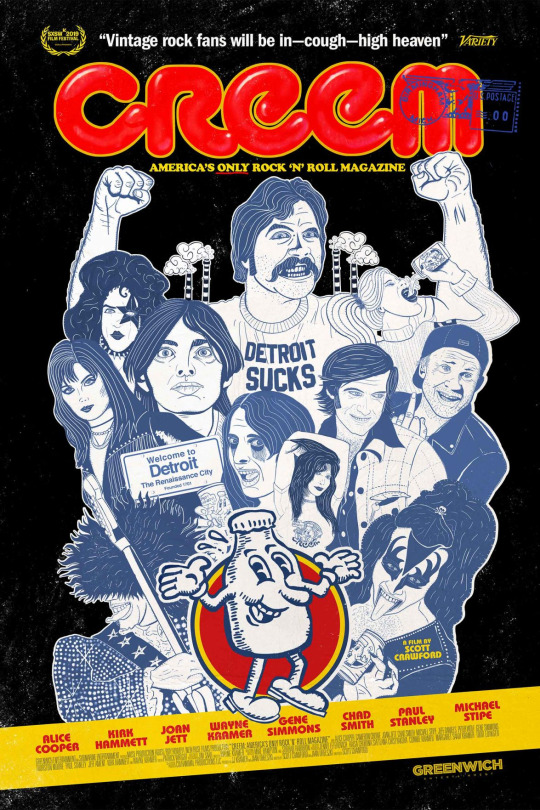
movie poster
Full Disclosure: director Scott Crawford is a friend of mine. Around 2014-2015, while I was hitting the film festival circuit with my documentary Life on the V: The Story of V66, there were several festivals where Crawford’s documentary Salad Days, was also screening. I started to hear a lot of buzz about this doc and we finally met at the 2015 Asbury Park Music in Film Festival. That same year, both of our docs were also distributed by MVD Entertainment Group. I liked Salad Days and felt like both of us were cut from the same cloth in that we both made docs about a specific region (Life on the V is about a music video TV channel in 1980s Boston; Salad Days is about the punk scene in the 1980s D.C.) but both were about universal themes and ideas. A few years after our festival runs, I heard his follow up was going to be about Creem magazine, so naturally I took an interest immediately! I, myself, never got heavy into Creem. By the time I was getting into music magazines, Creem was in its final years, but I always had respect for old back issues I’d flip through in record stores or at conventions over the years.
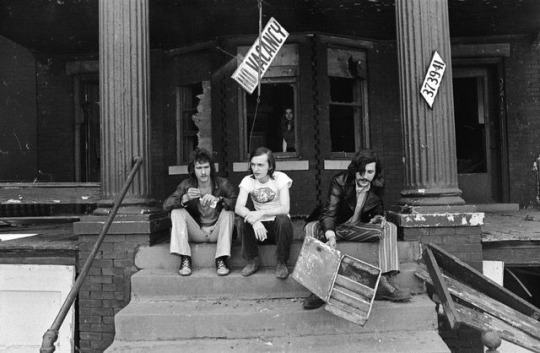
Creem’s Barry Kramer, Dave Marsh, and Lester Bangs circa early 70s
Creem began in Detroit in 1969 as a monthly magazine. They looked at Rolling Stone as the establishment and they were going to be the magazine version of what rock music was really about. It says a lot that some of the greatest music journalists of all time wrote for Creem at some point or another: Lester Bangs, Dave Marsh, Cameron Crowe, Robert Christgau, Greil Marcus, Chuck Eddy, the list goes on. This doc shows its early beginnings and how it was more than just a magazine, but a group of misfits who came together through a love of music, did things on their terms and found there was a huge audience that felt the same. The subject at the center of the documentary is Creem’s founder and publisher Barry Kramer. His wife Connie was associate publisher of the magazine too. For a while, they moved the magazine from Detroit to rural Michigan, where the staff lived with the Kramers in a commune-type environment. After Barry’s death in 1981, Connie kept the magazine going for several years before selling the magazine in 1989.
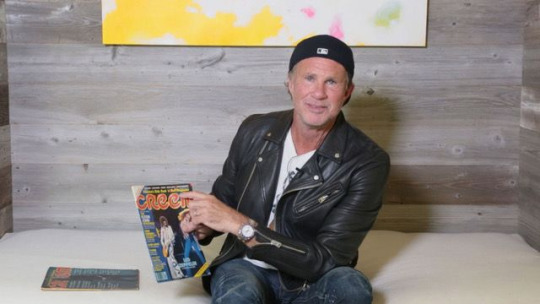
Michigan native and RHCP drummer Chad Smith reminisces about Creem
This doc is music geek heaven! It is a total blast. What this doc tapped into was the rebellious nature of underdogs who come into any medium that is dominated by bigger companies. In this case, it was a magazine, but these underdogs had passion. In a way, Creem pre-dated the from-the-gut criticism that became commonplace when the internet began. Since the magazine was based in Detroit, there was an emphasis on Detroit music. The doc features some great interviews beyond the staff, but with musicians like Wayne Kramer of The MC5, Ted Nugent, Alice Cooper, Peter Wolf (Detroit was like a second home for The J. Geils Band, who visited frequently from Boston), Gene Simmons and Paul Stanley of Kiss, Joan Jett, Kirk Hammett of Metallica, Jeff Ament of Pearl Jam, Chad Smith of Red Hot Chili Peppers, and Jeff Daniels among others. I found the most compelling ones to be the musicians who were influenced by Creem as that was their only way of learning about the music they loved at the time.
One of the big challenges that a doc about a print publication like a newspaper or magazine encounters is how to make it visually intriguing. Documentaries about aspects of television or film have TV and movie footage to inter-cut and make it engaging within a visual medium like documentary. Some docs that have tried to profile a newspaper or magazine end up being heavy on talking head interviews and have little archival footage beyond the publication itself. Fortunately this doc had plenty of archival footage. I was surprised how much of the Creem offices had been filmed. There is also plenty of animated interludes as well. I do wish that the doc spent a little more time on the magazine’s move to LA in the 80s. But it was probably done to keep the focus on the 70s heyday of the magazine. Also - any doc that shines a light on Lester Bangs is fantastic! After hearing the war stories about him, you realize not just how the Lester Bangs scenes in Crowe’s Almost Famous were super-personal to Crowe, but how Creem actually had a huge influence on him too. Music journalism is something I’ve always been passionate about (I wanted to be Kurt Loder as a teenager and interview rock stars...I guess doing this blog is close enough), and this doc is told by a passionate music fan! Way to go Scott!
For info on Creem: https://greenwichentertainment.com/film/creem-americas-only-rock-n-roll-magazine/
4 out of 5 stars
I Used to Go Here

movie poster
Kris Rey (she previously went by Kris Swanberg) has followed up her highly underrated 2015 dramedy Unexpected. It was set to premiere at SXSW in March...and we know how that ended up. But lucky for us Gravitas is releasing the movie this week. Gillian Jacobs, who was so good on TV’s Community and Love and in the fantastic Don’t Think Twice, stars as Kate, a mid-30s author in Chicago. The first 10 minutes brings us up to speed that she recently broke up with her fiancee, her newly published book is doing so bad her publisher canceled the book tour, and three of her friends are all expecting and she’s not. She gets a call from one of her favorite writing professors in college (Jermaine Clement) to come back to her alma mater and do a reading from her book. While staying at a bed-and-breakfast she goes across the street to the apartment she lived at over 15 years earlier. That’s the set up, to give more away would spoil the fun.
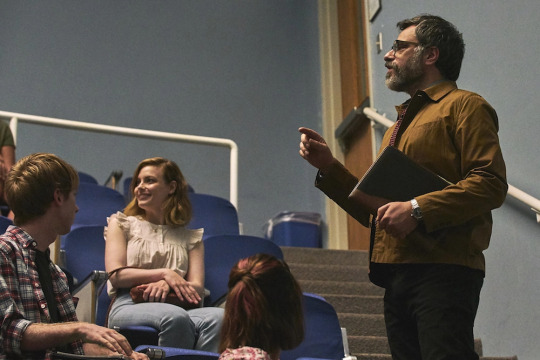
Jacobs sits in on a class taught by Clement
Anyone who knows me or reads this blog knows one of my obsessions is nostalgia and this movie dives deep into nostalgia. Kate is dealing with bad news after bad news, notably a scathing review from the NY Times of her book. But its a common thing in your 30s at some point or another to feel like “Is this it? I thought things would be better by now”. But in going back to her old college, re-connecting with her professor, hanging out with the new college kids at her old pad, she’s confronting the hope and possibility she had at the time from the lens of the jadedness she’s feeling now. Jacobs is a revelation in this role. She elevates this film in a big way. But there is a real charm to this film too: seeing Kate run into old acquaintances, reminiscing, and sliding back into some destructive behavior. At times, the film teeters on sitcom territory, but stay with it. There is a darkness bubbling underneath and you’re rooting for her to come out the other side as Kate finds some catharsis in this trip. The film was edited by frequent Rey collaborator Zach Clark, who is a talented filmmaker in his own right (read my interview with him from the 2016 Boston Underground Film Festival here). In a strange way, this film reminded me of Clark’s film Little Sister, about a young nun who goes back to her family and re-connects with her brother for a few days. We’ve seen countless films about someone going back to a place of their past (Grosse Pointe Blank, Young Adult, and Rachel Getting Married for starters) while trying to get their shit together. This film, in the wrong hands, could’ve been a typical comedy about an older person hanging out with younger college kids (i.e. Old School, Back to School, The House Bunny), but hats off to Rey and Jacobs for making this terrain feel new and original.
For info on I Used to Go Here: http://gravitasventures.com/i-used-to-go-here/
3.5 out of 5 stars
#boy howdy: the story of creem magazine#creem magazine#scott crawford#salad days#lester bangs#cameron crowe#music journalism#Alice Cooper#peter wolf#kirk hammett#jeff ament#chad smith#documentary#i used to go here#kris rey#zach clark#Movie Reviews#film geek
0 notes
Text
Stuff I’m Looking Forward to in August
This monthly column I do where I preview upcoming pop culture events I’m excited about this coming month has felt extremely different since lockdown began in March. Having said that, there’s still plenty of things coming up. In addition to Ashura (Aug. 28-29) here is what’s on my radar this month:
Movies:
Boy Howdy: The Story of Creem Magazine
My buddy Scott Crawford directed this doc about the famous 70s rock magazine and I’ve been excited about it since it’s festival premiere last year. Opens 8/7.
TV:
The Go-Go’s
Speaking of music docs, The Go-Go’s are finally getting the music doc treatment they deserve. After premiering at Sundance earlier this year, the doc will broadcast on Showtime on 8/1. [NOTE: my review is coming soon]
Music:
The Killers Imploding the Mirage
The new wave revivalists The Killers are back with their 6th album. Since their awesome debut Hot Fuss, their albums have been hit or miss, but I dug last year’s single “Land of the Free” (my #10 Song of 2019) and dig what I’ve heard off this new album, which drops on 8/21.
Metallica S&M2
In 1999, Metallica and the San Francisco Symphony did some shows together, which were released as the live album S&M (Symphony and Metallica - get it?). It was a cool mashup of metal and classical and it worked. Skip ahead to Sept. 2019, they did some shows together to celebrate the 20th anniversary of those shows. These live shows are going to be released as a live album, DVD, blu-ray and box set on 8/28.
The Empty Hearts The Second Album
One of the underrated super groups of the last decade has been The Empty Hearts featuring Elliot Easton (The Cars), Clem Burke (Blondie), Wally Palmar (The Romantics), and Andy Baiuk (The Chesterfield Kings). They released an album in 2014 and earlier this year they even released a song with Ringo Starr. The follow-up album drops 8/28.
Events:
Record Store Day
I was heartbroken when my favorite fake holiday (the day we celebrate independent record stores!!!) was postponed in April due to the pandemic. Many record stores are hurting right now and while several have been doing mailing or curbside pickup, a lot of them are just beginning to re-open. This year’s RSD is going to be three separate days, the first of which is going to be on 8/29!
#boy howdy: the story of creem magazine#scott crawford#The Go-Go's#allison ellwood#the killers#metallica#san francisco symphony#the empty hearts#record store day#stuff i'm looking forward to#music nerd#film geek#documentary#elliot easton#the cars#clem burke#blondie
0 notes